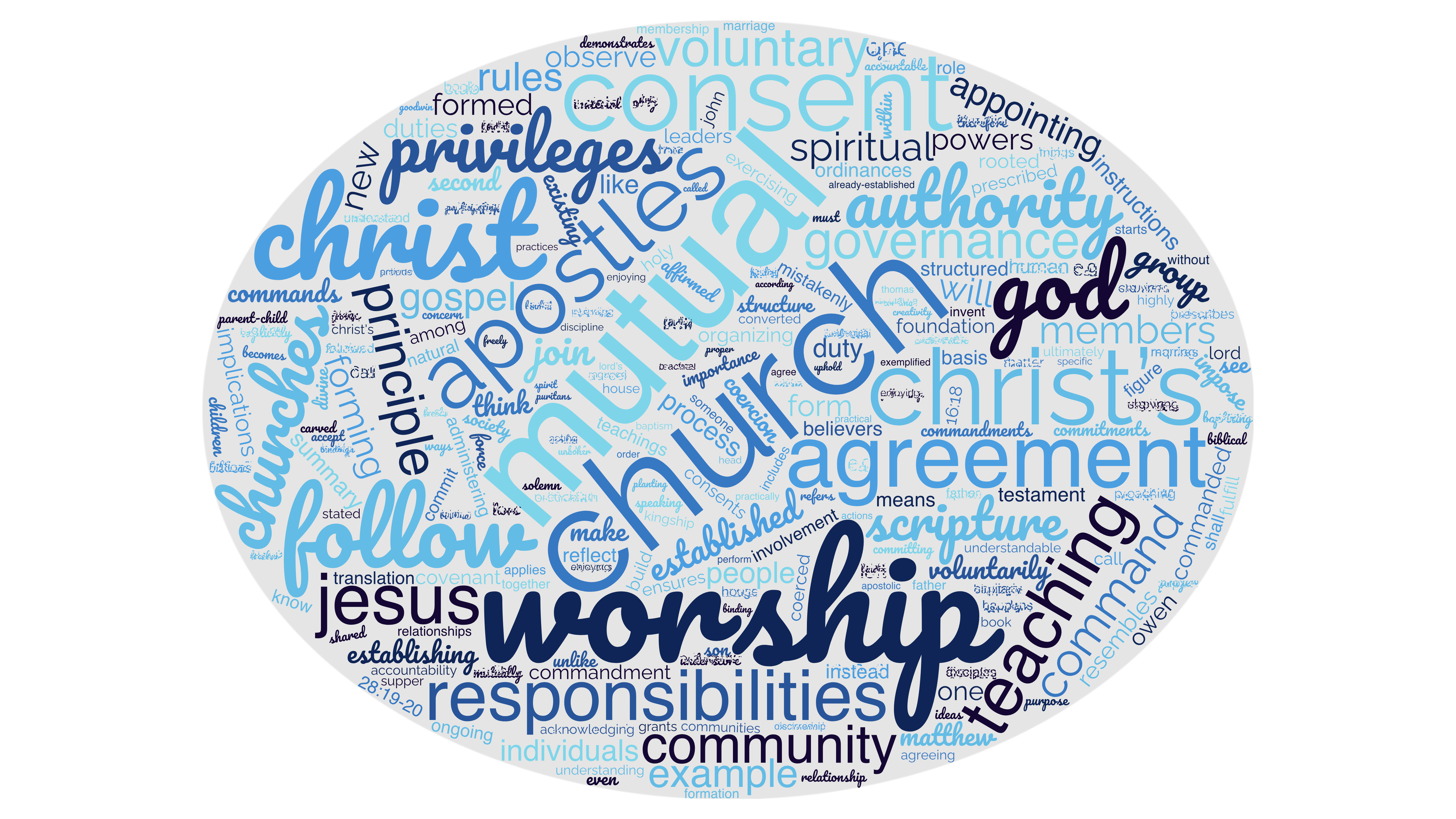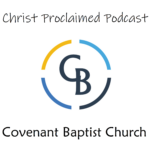“Matter And Form, Part 2: Form” (Baptistic Congregationalism)


“Matter And Form, Pt.2: Form” is a Sunday School lesson from the series Baptistic Congregationalism taught from Selected Scriptures by Noah Olguin, pastor of Covenant Baptist Church in New Berlin, Wisconsin – a confessional Reformed Baptist church subscribing to the 1689 London Baptist Confession of Faith.
How a Church is Formed: Mutual Consent and Spiritual Foundation
The Form of the Church
The “form” of the church refers to the process or means by which a group of people becomes a church. It asks: how do these converted individuals (the “matter” or material of the church) unite to form a spiritual house, a church? Ultimately, we know God brings them together, but practically speaking, this happens through mutual consent.
Think of it like forming any other society, such as a book club. You can’t force people to join by coercion or impose rules without agreement. Instead, the group must voluntarily agree to the shared purpose, rules, and commitments. Similarly, a church is formed when individuals mutually consent to follow Christ’s teachings, observe His ordinances, and fulfill their responsibilities within the church community.
Voluntary and Mutual Agreement
A church starts with a solemn agreement among individuals. This agreement includes:
- Acknowledging Christ as Lord.
- Agreeing to observe His laws, ordinances, and commandments.
- Voluntarily committing to perform all duties required by Jesus.
This mutual consent ensures that no one is coerced into the church. Members join freely, understanding their responsibilities, and the existing community also consents to accept new members. This principle applies even when someone joins an already-established church.
Biblical Basis for Church Formation
The process is rooted in Christ’s command in Matthew 28:19-20:
“Go therefore and make disciples of all nations, baptizing them in the name of the Father and of the Son and of the Holy Spirit, teaching them to observe all that I have commanded you.”
The apostles followed this command by planting churches, organizing believers into communities, and teaching them to obey Jesus’ instructions. This demonstrates that forming churches is a gospel duty, not an option.
The Church as a Covenant Relationship
Unlike natural relationships (e.g., parent-child), church membership resembles a marriage covenant. It requires voluntary consent to join and mutual agreement to uphold duties and responsibilities. Members commit to being accountable to one another and to Christ as the head of the church.
Christ’s Authority Over the Church
Christ’s Role in Establishing the Church
Some people mistakenly think God was highly structured in the Old Testament but left the New Testament church to figure things out. This is not true. Jesus explicitly stated, “I will build my church” (Matthew 16:18), showing His ongoing authority and involvement. He established the foundation, structure, and rules for His church. It’s not up to us to invent our own ways of worship or governance. Instead, we follow what He has prescribed in Scripture.
The Church’s Powers and Privileges
Christ grants specific powers and privileges to the church, including:
- Powers: Administering baptism and the Lord’s Supper, preaching the gospel, exercising discipline, and appointing leaders.
- Privileges: Mutual edification, prayer, being called children of God, and enjoying spiritual fellowship.
These responsibilities and blessings underscore the importance of participating in a church community.
Theological and Practical Implications
Church Governance and the Second Commandment
The governance and order of the church reflect Christ’s kingship and concern for proper worship. The Second Commandment (“You shall not make for yourself a carved image…”) teaches us to worship God only as He commands, not according to human ideas. This is the basis for the Regulative Principle of Worship, which means we worship God as He prescribes in Scripture.
Apostolic Example as Divine Authority
The apostles’ practices in establishing churches, appointing leaders, and organizing worship are authoritative because they reflect Christ’s teaching. When we see their example in Scripture, we understand it as Jesus’ will for His church. Puritans like John Owen and Thomas Goodwin affirmed this principle, noting that the apostles’ actions provide a binding example for us to follow.
In summary, the church is formed through mutual and voluntary consent to follow Christ and His commands. Its structure, governance, and worship are not left to human creativity but are established by Christ and exemplified by the apostles. Joining a church is a gospel duty, rooted in the call to discipleship and the mutual accountability of believers under Christ’s lordship.

Leave a Reply